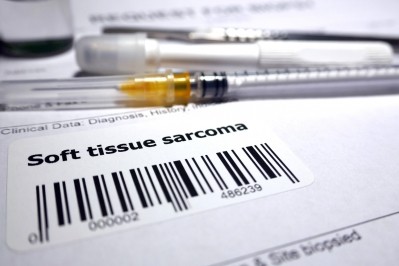Anticipation mounts as Insmed's bronchiectasis therapy nears phase 3 completion

The therapy has sparked significant anticipation within the medical community ahead of its phase 3 outcomes.
A positive outcome from this study could lay the groundwork for regulatory approval, potentially reshaping the treatment landscape for bronchiectasis, a condition currently without any globally approved therapies.
With other pharmaceutical companies entering the race for developing the first marketed therapy against bronchiectasis, the great opportunity in the market is underlined, according to data and analytics firm GlobalData.
Brensocatib is a dipeptidyl peptidase-1 (DPP-1) reversible inhibitor which exhibits anti-inflammatory action through suppressing the activity of neutrophil serine proteases (NSP).
This mechanism inhibits neutrophils that contribute to the inflammatory environment present in non-cystic fibrosis bronchiectasis (NCFB) patients.
A phase 2b study from Insmed previously demonstrated the efficacy of brensocatib in prolonging the time to first exacerbation and in reducing the frequency of exacerbations.
Filippos Maniatis, healthcare analyst at GlobalData, said: “Brensocatib phase 3 results have been anticipated for quite a while now, with key opinion leaders expressing their excitement about the previous clinical trial results for NCFB patients, and its potential approval.
“However, the outcomes of the anticipated phase 3 study will determine the future of brensocatib in the treatment landscape of bronchiectasis, as the presence of promising findings will progress the agent closer to market authorization.”
According to GlobalData, brensocatib’s sales are anticipated to reach $1.2bn by 2030, subject to approval, and the competition in the bronchiectasis treatment landscape is expected to increase over the next few years.
Key competitors include Boehringer Ingelheim’s cathepsin C inhibitor BI-1291583, Regeneron’s anti-IL-33 monoclonal antibody itepekimab, Chiesi’s human neutrophil elastase inhibitor CHF-6333, Armata Pharmaceuticals’s APPA-02 and Renovion’s ascorbic acid.
All of these therapies are currently in phase 2 clinical trials and are competing for future market authorization.
Overall, the bronchiectasis landscape has seen significant growth over the years, with the competition increasing as companies get closer to market authorization.
Nevertheless, the lack of advanced therapies for bronchiectasis intensifies the attention of the wider medical community and increases the anticipation for further results on pipeline agent studies.
Maniatis concludes: “The projected sales of brensocatib may further reflect the great significance and impact of its potential approval on the bronchiectasis market, as it will be the first-to-market therapy for the treatment of bronchiectasis.
“As the treatment landscape is currently governed by off-label therapies, the unmet need in the field related to the development of advanced therapies that can target the disease at a cellular level is uncovered can be seen as an opportunity for pharmaceutical companies to enter a market with potentials of rapid expansion within this indication.”
















